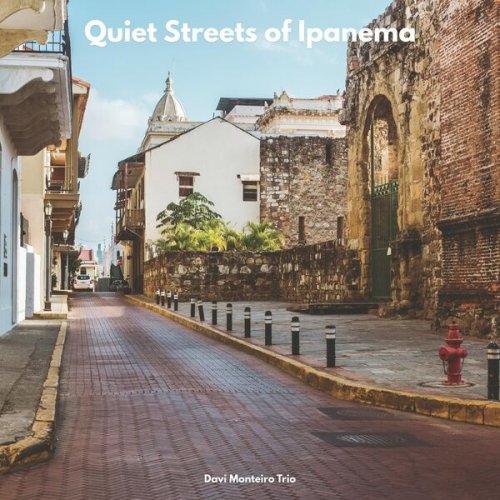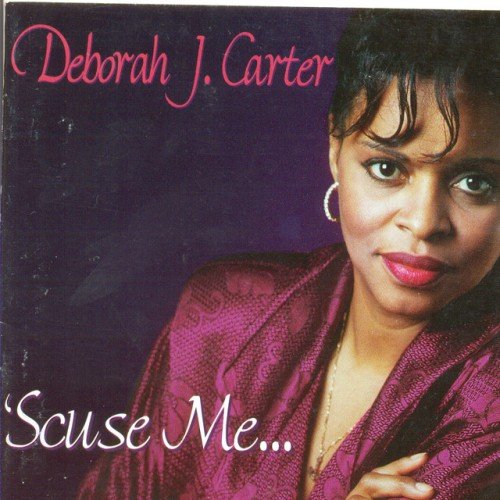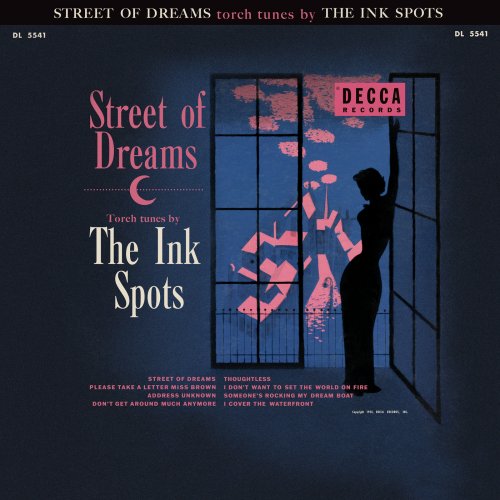Chris Powell - Blues & Rhythm Series 5065: The Chronological Chris Powell 1949-1952 (2003)
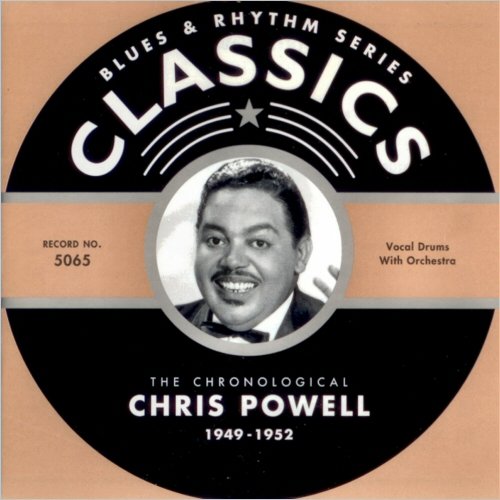
Artist: Chris Powell
Title: Blues & Rhythm Series 5065: The Chronological Chris Powell 1949-1952
Year Of Release: 2003
Label: Classics Records
Genre: Blues, R&B, Jazz
Quality: FLAC (tracks)
Total Time: 68:01
Total Size: 179 MB
WebSite: Album Preview
Tracklist:Title: Blues & Rhythm Series 5065: The Chronological Chris Powell 1949-1952
Year Of Release: 2003
Label: Classics Records
Genre: Blues, R&B, Jazz
Quality: FLAC (tracks)
Total Time: 68:01
Total Size: 179 MB
WebSite: Album Preview
01. Big Fat Butterfly (3:02)
02. Ambling With Herb (3:03)
03. Summertime (3:11)
04. Swinging Door Groove (3:04)
05. SK Blues (Part 1) (3:29)
06. SK Blues (Part 2) (3:02)
07. What's Your Story, Morning Glory (3:18)
08. Jive At Eleven Five (3:19)
09. What A Life (2:46)
10. After Hours (2:56)
11. I'll Know Just What To Do (2:32)
12. Why Was I Born (2:44)
13. Sk Jumps - Part1 (3:14)
14. Sk Jumps - Part 2 (3:01)
15. I'd Climb The Highest Mountain (2:58)
16. Lazy Woman Blues (2:35)
17. I've Had My Moments (3:00)
18. The Atom Leaps (3:16)
19. Lonesome Pillow Blues (Part 1) (3:13)
20. Lonesome Pillow Blues (Part 2) (3:05)
21. Stay Gone Blues (2:42)
22. Write Me A Letter Blues (2:51)
23. Swingin (2:57)
Born Christopher E. Powell, 12 July 1921, Cazenovia, New York
Died 24 June 1970, Syracuse, New York
One of the earliest of the many Philadelphia-based R&B acts signed to US Columbia in the late 1940s/early 1950s, and a great influence on the young Bill Haley, Chris Powell's Five Blue Flames was a local jive band that consisted of leader Powell on drums/percussion (on recordings, however, Powell's musical skills were obviously felt to be too weak, resulting in the role often being taken over by a succession of session drummers), Harold "Duke" Wells on piano, Eddie Lambert on guitar, saxophonists Danny Turner and Leonard "Red" Spencer, and bass-player James Johnson. By the summer of 1950, Vance Wilson had replaced Spencer, and remained with the group until it disbanded at the end of the decade.
Another loyal star of this superb jump band was guitarist Eddie Lambert who added another dimension to cover versions such as Rock The Joint and I'm Still In Love With You - his already strong playing was sometimes bolstered on recording sessions by guest guitarists such as "Snags" Allen and Bill Jennings. The band switched from Columbia to the OKeh subsidiary, and bop trumpeter Clifford "Brownie" Brown joined the Blue Flames in late 1951, following his convalescence from a serious auto wreck in June 1950. He added a welcome touch of brass to the ensemble, but he spent just sixteen months with the Blue Flames, and after making a stunning recording debut with Powell's group, left to pursue a brief but dazzling career in serious jazz before his untimely death in a further car accident in June 1956, aged only 25.
Originally a group firmly in the grand tradition of the 1930s and 1940s jive vocal/instrumental groups, the vocals were often ensemble affairs with a brief lead break taken usually, by leader Powell, but occasionally by another band member - such as pianist Duke Wells - who exercised his chops on Down In The Bottom.
The record labels of My Love Has Gone and Blue Boy, from the final session for Columbia/OKeh, identified the singer as "Johnnie Echo", but it has been suggested that this name hid the identity of Joe Van Loan, lead tenor with The Ravens vocal group (although saxophonist Vance Wilson disputed this and claimed that Echo was really a guy named Johnny Leak!). The final OKeh session also included the first recorded work of Clifford Brown whose Dizzy Gillespie-inspired trumpet playing added weight and sophistication to such novelties as Ida Red and I Come From Jamaica.
The Blue Flames were dropped by OKeh following this 1952 session and the group spent the next couple of years on Philly's local Grand Records before being offered a year's contract in early 1955 with RCA's Groove subsidiary. The group's final recordings were made for Groove in February 1956, by which time the Blue Flames were but a shadow of their former selves, struggling unsuccessfully against the tidal wave of rock 'n' roll and reduced to churning out show tunes and old swing standards.
Music historian Ron Meyers is considered the foremost authority on Chris Powell & The Blue Flames, and when I asked him how he had "discovered" this relatively obscure jump combo, this was his answer:
In the early fifties I used to travel to Philadelphia, PA very often on weekends to see a friend, Mutt Spivack, who was well versed in what was then known as "rhythm & blues". I was into Monk, Bud Powell and Bird at the time and aside from a few in person shows with the likes of The Treniers, Sam 'The Man' Taylor and a whole gang of Alan Freed's Shows at the Brooklyn Paramount, was never really exposed to Rhythm & Blues. In those days, it seems to me, the jazz club's audiences were primarily white and the musicians primarily black. But when Mutt asked me on one of my visits to Philly if I would like to see "Chris Powell & The Five Blue Flames", it was at an all black club. Mutt & I and our two white faces stood out like a sore thumb but nobody paid much attention to us. The people were there to dance more than to listen. The couples danced real close to each other, even on the up tempo tunes. When the group played "A Man & His Horn" I stood there with my mouth open. It was that great. Two days later I had the 78 rpm record on my turntable and played it so many times that the grooves disappeared. ~Dave Penny
Died 24 June 1970, Syracuse, New York
One of the earliest of the many Philadelphia-based R&B acts signed to US Columbia in the late 1940s/early 1950s, and a great influence on the young Bill Haley, Chris Powell's Five Blue Flames was a local jive band that consisted of leader Powell on drums/percussion (on recordings, however, Powell's musical skills were obviously felt to be too weak, resulting in the role often being taken over by a succession of session drummers), Harold "Duke" Wells on piano, Eddie Lambert on guitar, saxophonists Danny Turner and Leonard "Red" Spencer, and bass-player James Johnson. By the summer of 1950, Vance Wilson had replaced Spencer, and remained with the group until it disbanded at the end of the decade.
Another loyal star of this superb jump band was guitarist Eddie Lambert who added another dimension to cover versions such as Rock The Joint and I'm Still In Love With You - his already strong playing was sometimes bolstered on recording sessions by guest guitarists such as "Snags" Allen and Bill Jennings. The band switched from Columbia to the OKeh subsidiary, and bop trumpeter Clifford "Brownie" Brown joined the Blue Flames in late 1951, following his convalescence from a serious auto wreck in June 1950. He added a welcome touch of brass to the ensemble, but he spent just sixteen months with the Blue Flames, and after making a stunning recording debut with Powell's group, left to pursue a brief but dazzling career in serious jazz before his untimely death in a further car accident in June 1956, aged only 25.
Originally a group firmly in the grand tradition of the 1930s and 1940s jive vocal/instrumental groups, the vocals were often ensemble affairs with a brief lead break taken usually, by leader Powell, but occasionally by another band member - such as pianist Duke Wells - who exercised his chops on Down In The Bottom.
The record labels of My Love Has Gone and Blue Boy, from the final session for Columbia/OKeh, identified the singer as "Johnnie Echo", but it has been suggested that this name hid the identity of Joe Van Loan, lead tenor with The Ravens vocal group (although saxophonist Vance Wilson disputed this and claimed that Echo was really a guy named Johnny Leak!). The final OKeh session also included the first recorded work of Clifford Brown whose Dizzy Gillespie-inspired trumpet playing added weight and sophistication to such novelties as Ida Red and I Come From Jamaica.
The Blue Flames were dropped by OKeh following this 1952 session and the group spent the next couple of years on Philly's local Grand Records before being offered a year's contract in early 1955 with RCA's Groove subsidiary. The group's final recordings were made for Groove in February 1956, by which time the Blue Flames were but a shadow of their former selves, struggling unsuccessfully against the tidal wave of rock 'n' roll and reduced to churning out show tunes and old swing standards.
Music historian Ron Meyers is considered the foremost authority on Chris Powell & The Blue Flames, and when I asked him how he had "discovered" this relatively obscure jump combo, this was his answer:
In the early fifties I used to travel to Philadelphia, PA very often on weekends to see a friend, Mutt Spivack, who was well versed in what was then known as "rhythm & blues". I was into Monk, Bud Powell and Bird at the time and aside from a few in person shows with the likes of The Treniers, Sam 'The Man' Taylor and a whole gang of Alan Freed's Shows at the Brooklyn Paramount, was never really exposed to Rhythm & Blues. In those days, it seems to me, the jazz club's audiences were primarily white and the musicians primarily black. But when Mutt asked me on one of my visits to Philly if I would like to see "Chris Powell & The Five Blue Flames", it was at an all black club. Mutt & I and our two white faces stood out like a sore thumb but nobody paid much attention to us. The people were there to dance more than to listen. The couples danced real close to each other, even on the up tempo tunes. When the group played "A Man & His Horn" I stood there with my mouth open. It was that great. Two days later I had the 78 rpm record on my turntable and played it so many times that the grooves disappeared. ~Dave Penny

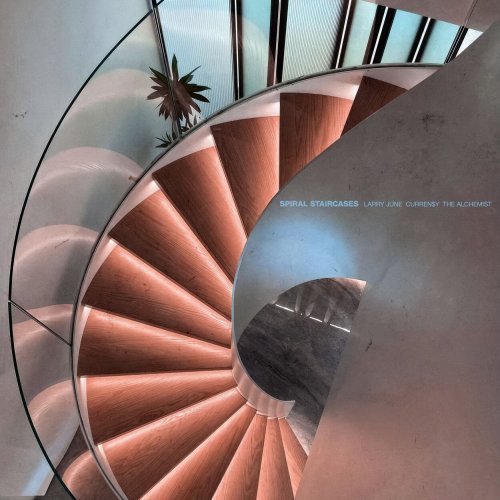
![Jan Harbeck Quartet - Arena (2026) [Hi-Res] Jan Harbeck Quartet - Arena (2026) [Hi-Res]](https://img.israbox.com/img/2026-02/21/ta1geqbunymda1vazij2b7te7.jpg)
![Noga - Heroes in The Seaweed (2025) [Hi-Res] Noga - Heroes in The Seaweed (2025) [Hi-Res]](https://www.dibpic.com/uploads/posts/2026-02/1771663366_nhs500.jpg)
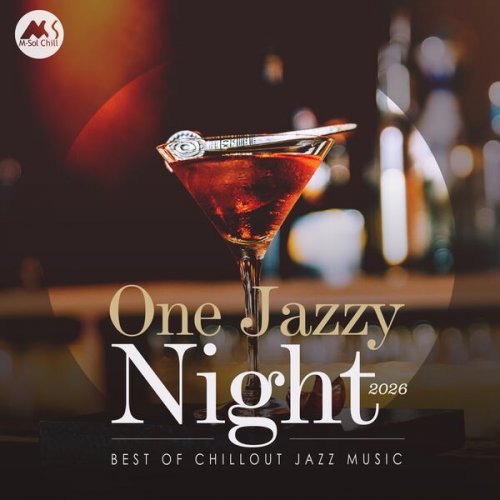
![L'Oiseau Ravage - Vertiges de la mue (2026) [Hi-Res] L'Oiseau Ravage - Vertiges de la mue (2026) [Hi-Res]](https://img.israbox.com/img/2026-02/20/nx23lj9uf6shoeud9r81rkfqi.jpg)
